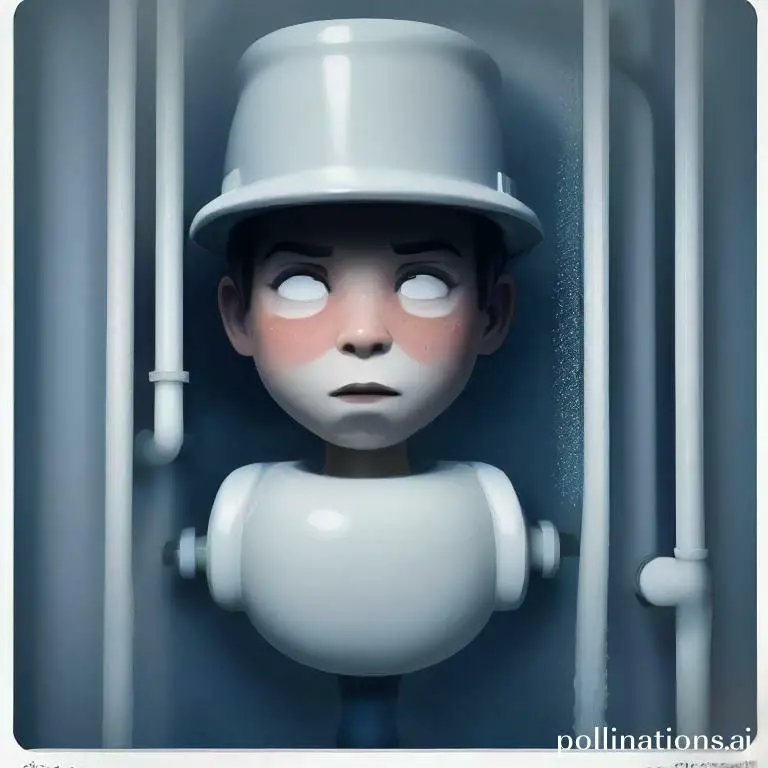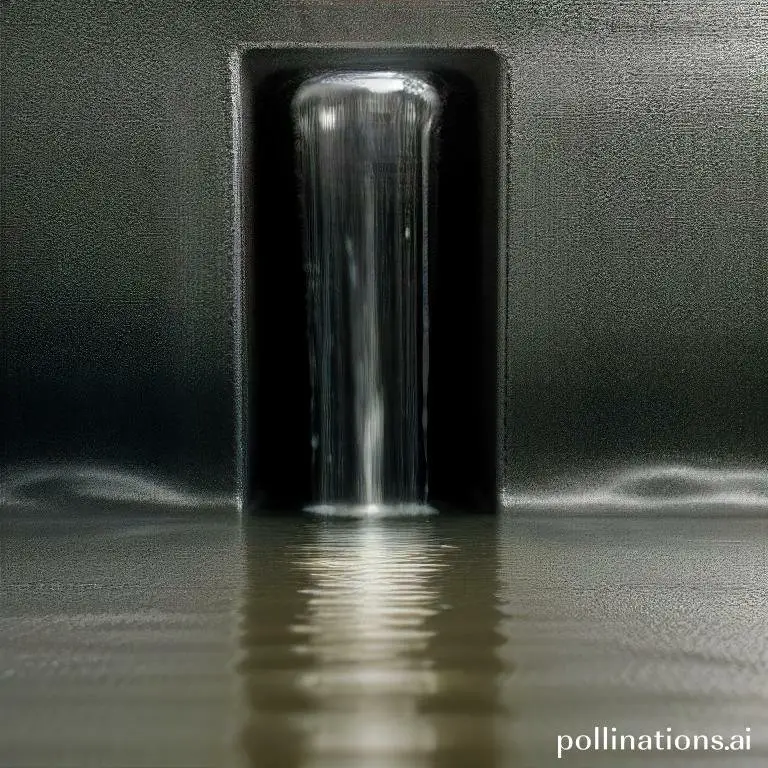
II. Identifying and fixing leaks promptly can save money and prevent further damage to plumbing systems.
III. Regular maintenance and monitoring of water usage can help prevent leaks and reduce the risk of unexpected expenses.
Leaks in water systems can have a significant impact on water bills. These leaks can go unnoticed for long periods of time, resulting in wasted water and increased costs.
By identifying and repairing leaks promptly, homeowners and businesses can save money and conserve water resources. Vital to regularly check for leaks in faucets, toilets, and pipes to ensure efficient water usage.
Taking proactive measures to address leaks can lead to lower water bills and a more sustainable future.
Identifying Leaks
In this section, we will discuss the different methods and techniques to identify leaks in your home. Fundamental to detect and fix leaks promptly to avoid water wastage and potential damage to your property.
1. Signs of leaks in the home
There are several signs that can indicate the presence of leaks in your home. Look out for the following:
- Water stains: Check for any yellow or brown stains on walls, ceilings, or floors, as they can indicate water leakage.
- Dripping sounds: Listen for any dripping sounds, especially in walls, ceilings, or plumbing fixtures.
- Musty odors: If you notice a persistent musty smell in your home, it could be a sign of hidden water leaks.
- High water bills: If your water bills have been consistently higher than usual, it could be due to undetected leaks.
2. Checking for leaks in the water meter
The water meter is an important tool to detect leaks in your water supply. Follow these steps:
- Turn off all water sources: Make sure no water is being used in your home.
- Locate your water meter: Typically, it is located outside your home in a covered box.
- Observe the meter: If the meter is still moving, it indicates that there might be a leak in your water supply.
3. Conducting a dye test to detect leaks
A dye test is a simple and effective method to identify leaks in toilets and plumbing fixtures. Here’s how to perform a dye test:
- Add dye to the tank: Put a few drops of food coloring or a dye tablet into the toilet tank.
- Wait and observe: Without flushing, wait for about 15-30 minutes and check if the dye appears in the toilet bowl. If it does, there is a leak.
| Leak Detection Methods | Pros | Cons |
|---|---|---|
| Visual Inspection | Easy to perform and cost-effective | May not detect hidden leaks |
| Water Meter Testing | Can accurately detect leaks in the water supply | Does not identify specific leak locations |
| Dye Testing | Simple and effective for detecting toilet leaks | Not suitable for detecting all types of leaks |
Fixing Leaks
Leaky plumbing can be a major inconvenience and can lead to water damage if not addressed promptly. In this section, we will scrutinize various methods for fixing leaks, whether you prefer a DIY approach or hiring a professional plumber.
1. DIY methods for fixing leaks
Fixing minor leaks on your own can save you time and money. Here are some simple steps you can take to address common leaks:
- Identify the source: Start by locating the source of the leak. Check for dripping faucets, water stains, or wet areas around pipes.
- Tighten connections: In many cases, a loose connection may be the cause of the leak. Use a wrench to tighten any loose fittings or connections.
- Replace faulty washers or gaskets: If you have a dripping faucet, it may be due to a worn-out washer or gasket. Replace these components to stop the leak.
- Apply plumber’s tape: For minor pipe leaks, applying plumber’s tape can provide a temporary fix. Wrap the tape tightly around the leaking area to seal it.
2. Hiring a professional plumber
During DIY methods can be effective for small leaks, more complex plumbing issues may require the expertise of a professional plumber. Here are a few reasons why hiring a plumber is beneficial:
- Experience and knowledge: Professional plumbers have the necessary training and experience to quickly identify and fix leaks.
- Proper equipment: Plumbers have specialized tools and equipment that allow them to efficiently repair leaks without causing further damage.
- Long-term solutions: A professional plumber can provide a lasting solution to your leak problems, ensuring that the issue doesn’t recur in the future.
3. Replacing old and faulty plumbing fixtures
If you have frequent leaks or outdated plumbing fixtures, it may be time to consider replacing them. Upgrading to newer fixtures can not only prevent leaks but also improve water efficiency. Here are a few fixtures you may need to replace:
- Faucets: Old faucets can develop leaks over time. Consider installing modern, water-saving faucets to reduce the risk of leaks.
- Pipes: If you have old or corroded pipes, they may be prone to leaks. Replacing them with newer, more durable pipes can prevent future issues.
- Toilets: Faulty toilet parts, such as flappers or valves, can cause leaks. Upgrading to efficient, leak-proof toilets can save water and prevent leaks.
Preventing Leaks
Leaks in plumbing systems can cause significant damage to your home and lead to costly repairs. By taking proactive steps to prevent leaks, you can protect your property and save money in the long run. Here are some strategies to help you prevent leaks:
1. Regular maintenance of plumbing systems
Regular maintenance is key to preventing leaks. Hire a professional plumber to inspect your plumbing system at least once a year. They can identify any potential issues and fix them before they turn into major leaks. Additionally, have your pipes and fixtures checked for signs of corrosion or wear and tear regularly.
2. Upgrading to high-quality plumbing fixtures
Investing in high-quality plumbing fixtures can help prevent leaks. Cheap and low-quality fixtures are more prone to leaks and can cause problems in the long run. Consider upgrading to fixtures made from durable materials such as brass or stainless steel. These fixtures are less likely to develop leaks and will last longer.
3. Being mindful of water usage habits
Conserving water not only helps the environment but also reduces the risk of leaks. Be mindful of your water usage habits and avoid excessive water pressure. High water pressure can put stress on your plumbing system and lead to leaks. Additionally, avoid flushing items down the toilet that can cause clogs and leaks, such as sanitary products or excessive amounts of toilet paper.

The Cost of Ignoring Leaks
Leaking water can be more than just a nuisance; it can have significant consequences for your finances, property, and the environment. In this section, we will investigate the various costs associated with ignoring leaks and the importance of addressing them promptly.
1. Increased water bills
One of the immediate impacts of ignoring leaks is the increase in water bills. Even a small, unnoticed leak can waste a significant amount of water over time, leading to higher monthly expenses. By confronting leaks promptly, you can avoid unnecessary financial strain and ensure that your water usage remains efficient.
2. Property damage and mold growth
Leaks can cause extensive damage to your property if left unattended. Water seeping into walls, floors, or ceilings can weaken structures, leading to costly repairs. Additionally, stagnant water from leaks creates a conducive environment for mold growth, which can negatively impact indoor air quality and pose health risks. By acknowledging leaks early on, you can prevent further damage to your property and maintain a safe living environment.
3. Environmental impact
Ignoring leaks also has adverse effects on the environment. Water is a precious resource, and wasting it due to leaks contributes to water scarcity. Additionally, leaks can contaminate water sources with harmful pollutants, affecting ecosystems and wildlife. By promptly fixing leaks, you play a crucial role in conserving water resources and protecting the environment for future generations.
| Cost of Ignoring Leaks |
|---|
| 1. Increased water bills |
| 2. Property damage and mold growth |
| 3. Environmental impact |

Tools and Resources for Leak Detection and Repair
In the realm of leak detection and repair, having the right tools and resources is essential. In this section, we will traverse some of the top options available to help you tackle this common household issue.
1. Leak detection kits
Leak detection kits are a great starting point for identifying leaks in your home. These kits typically include tools such as moisture meters, infrared cameras, and sensors. By using these devices, you can easily pinpoint the source of a leak and take appropriate action to fix it.
2. Water-saving devices
Prevention is key as for leak detection and repair. Installing water-saving devices can help you minimize the risk of leaks and conserve water at the same time. Options like low-flow showerheads, faucet aerators, and toilet leak detection tablets can make a significant difference in your water usage and prevent leaks from occurring.
3. Online resources for DIY repairs
If you’re the type of person who enjoys tackling home repairs on your own, there are plenty of online resources available to guide you through the process. Websites, forums, and video tutorials can provide step-by-step instructions on how to detect and repair leaks in different areas of your home. Just make sure to follow the instructions carefully and take safety precautions when necessary.
| Leak Detection Tools | Water-Saving Devices | Online Resources |
|---|---|---|
|
|
|
Bottom Line
Leaks in water systems can have a significant impact on water bills, leading to wastage of water and increased costs for consumers. Integral to regularly check for leaks and fix them promptly to avoid unnecessary expenses. Simple measures such as turning off taps properly and fixing dripping faucets can go a long way in reducing water bills. In addition, investing in water-efficient appliances and fixtures can help to conserve water and reduce costs in the long run. By taking proactive steps to prevent leaks and conserve water, consumers can save money and contribute to a more sustainable future.
Overall, leaks are a common problem in water systems that can have serious consequences for both consumers and the environment. By staying vigilant and taking steps to prevent leaks, we can all play a role in reducing water waste and promoting sustainability.
Read More:
1. Leaks And Their Effect On Home Resale Value
2. Identifying Leaks In Older Water Heaters
















